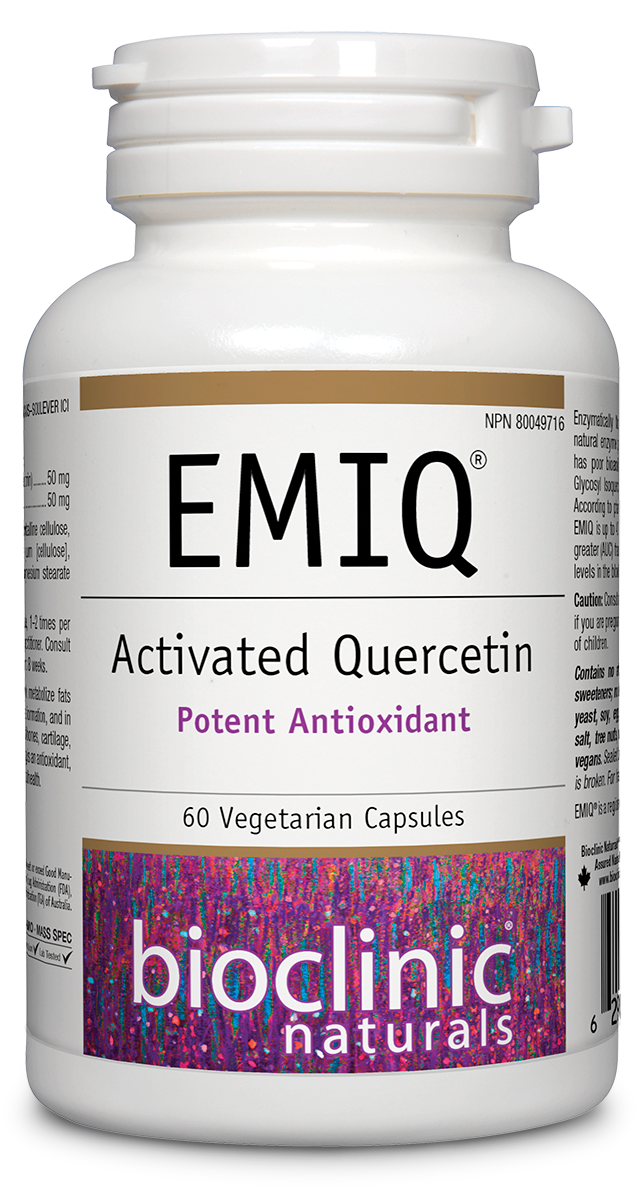

EMIQ Activated Quercetin
- 25.99$
0.00$- 25.99$
- Unit price
- per
Description
x- Most absorbable form of quercetin
- Provides 40 times greater absorption than regular quercetin
- Provides 167 mg of enzymatically modified isoquercitrin (EMIQ), providing 50 mg of quercetin, as well as 50 mg of vitamin C per capsule
- Provides anti-inflammatory, antioxidant, anti-allergic and cardiovascular benefits
- Suitable for vegetarians and vegans
Quercetin, a dietary flavonol known to be one of the most potent plant-derived antioxidants, has multiple biological actions, with preclinical studies showing anti-inflammatory, antithrombotic, and vasodilatory benefits. The limiting factor in quercetin's clinical efficacy appears to be its poor bioavailability. Enzymatically modified isoquercitrin (EMIQ) is a mixture of quercetin monoglucoside and its alpha-oligoglucosides that has been shown to have significantly higher bioavailability than other available forms. In animals, EMIQ has been shown to produce a 40-fold increase in Cmax (peak plasma concentration) and an 18-fold increase in AUC compared to quercetin. In humans, EMIQ supplementation increased plasma concentrations to a significantly greater extent. than other forms, including the aglycone and isoquercitrin (Q3G) forms. Randomized, placebo-controlled trials have shown that EMIQ has clinical benefits not seen with less absorbable forms. In a recent crossover trial in volunteers at risk for cardiovascular disease (i.e., those with elevated blood pressure, lipids, glucose, or waist circumference), EMIQ improved endothelial function (as measured by flow-mediated vasodilation), a key risk factor for hypertension, atherosclerosis, and cardiovascular disease. American football players taking whey protein supplements experienced greater increases in lower-limb muscle mass and antioxidant protection when they consumed 42 mg of EMIQ per day compared to whey alone. Two trials found that EMIQ reduced medication use and ocular symptoms. hay fever due to Japanese cedar pollinosis.
Produits recommandés
Produits récemment consultés
- Choosing a selection results in a full page refresh.


